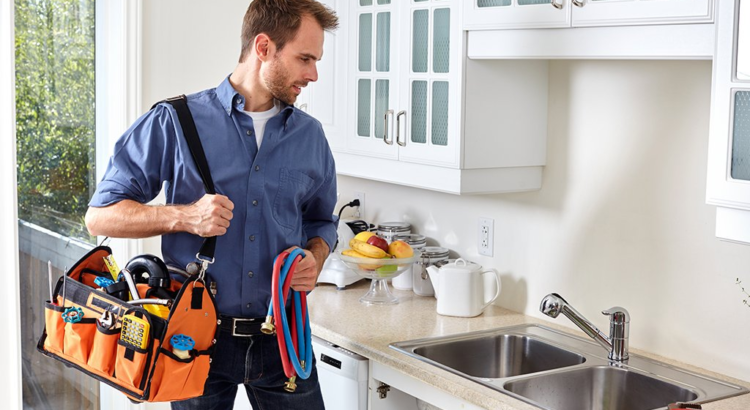A handyman can perform various tasks, from washing windows to mounting TVs. They can also assemble furniture and repair appliances.
Screening potential handymen is essential to ensuring quality work and safety. Ask friends and family for recommendations, and check online reviews. Contact Handyman Lexington KY now!

Registering your business ($90 on zenbusiness) and obtaining general liability insurance is important.
Plumbing
Handymen are skilled professionals who can handle a wide range of repair and maintenance tasks. They have experience and access to all the tools they need to complete jobs quickly, allowing them to save clients money by eliminating the need for them to purchase or rent their own equipment.
Plumbing is one of the most common services handymen provide, as they are often well equipped to handle basic home plumbing problems like unclogging toilets or drains and repairing dripping faucets. Their skills allow them to keep water running smoothly in homes, preventing water damage and reducing utility bills.
Similarly, handymen can also perform basic electrical work, such as replacing light bulbs and fixing faulty sockets. They may also be able to install items such as alarms, doorbells and security cameras. Handymen can even help with a variety of home improvement projects that require specialized knowledge of roofing, flooring and painting.
When hiring a handyman, it’s important to clearly define the scope of the work you need done before agreeing to a price. This helps to avoid misunderstandings and potential disputes over the cost of a project.
Some specialized tasks, such as installing a home theater system or repairing a roof, may require the services of a licensed contractor. In these cases, a handyman should recommend the appropriate professional to help with the project.
Having a clear service list is important for both handymen and their customers. It ensures that both parties understand what work will be completed and enables the handyman to create a realistic estimate for the job. It also reflects professionalism and organisation, which can increase customer satisfaction. Finally, a well-defined service list can help to streamline operations by ensuring that handymen have the right tools and materials for each task.
Painting
Painting is an art form that can be practiced by anyone with a desire to express their creative ideas. It’s a form of visual communication that is rooted in the human experience and has been influential across cultures around the world.
Handymen who specialize in painting can offer a wide range of services that improve the appearance of a home or business. Interior painting services include recoloring, stain or paint removal, touch-up painting and refinishing woodwork like baseboards and crown molding. Exterior painting and staining can boost a home’s curb appeal and are visible advertisements for your business.
A handyman usually can’t perform specialized work that requires the expertise of a licensed professional, such as replacing a shower floor, fixing major termite damage under a house or moving a water or gas line. In these instances, a handyman will often refer the customer to a plumber, electrician or roofer.
Practicing painting can be useful for handymen who want to sharpen their observational skills and better understand light, form and color. Painting from real-life subjects can help, including still-life setups, landscapes and portraits. Painting outdoors (plein air) can also be a valuable learning experience and help you capture the nuances of natural light on your subjects.
Purchasing the right painting supplies can make all the difference when it comes to achieving the look you’re after. It’s important to purchase a high-quality acrylic or oil paint, as well as quality brushes and a good canvas. Make sure you have a selection of whites and primary colors, plus some neutrals and yellows, greens, blues and grays. You should also consider buying an assortment of blending or glazing tools for special effects.
Carpentry
Carpentry is one of the oldest trades and it continues to be highly sought after in the construction industry. It involves a wide range of skills and techniques, from framing a building to installing custom cabinetry. The job can be challenging, but it also offers great satisfaction for those who excel at it. It is a great career choice for those who enjoy working with their hands and like to see tangible results from their work. It can also offer a great deal of independence and entrepreneurship for those who prefer to be their own bosses.
There are a variety of different types of carpentry, ranging from rough to finish. Rough carpentry refers to the initial construction and structural framework of a project. It includes tasks such as laying the foundation, building walls and ceilings, and installing beams and supports. It is a vital component of any construction project and requires a high level of problem-solving skills to ensure the structure is sound.
Finish carpentry is a broader category that includes woodworking processes such as molding and trim work. It is often done in conjunction with other tradespeople to ensure that the finished product is cohesive and meets all applicable building codes and standards. This type of carpentry requires a strong understanding of design principles and an ability to utilize a variety of tools and machines.
Having an experienced handyman carpenter can help with a variety of projects around the home. From mounting televisions to assembling furniture, these tradespeople can provide expert advice and assistance. A reliable and qualified handyman can save you time, money, and headaches. They can also help you with a range of other maintenance tasks that you might not have the time or equipment to do yourself.
Flooring
Flooring is the surface that you walk on, so it’s important to make sure that it meets your needs. There are a variety of options available, including vinyl, ceramic, and hardwoods. Before making a decision, consider your personal style, budget, and room location. Also, think about how much traffic the floor will see and who will be using it. It’s a good idea to choose a material that is durable and easy to clean.
A concrete floor is a cost-effective option for residential or commercial use. It’s constructed with a layer of red earth or sand 150 mm thick that is well compacted with tamping rods. The next layer is a mix of 1:2 lime sand mortar and coarse aggregate, and then a topping of 40 mm thick concrete is laid. This type of flooring is ideal for ware-houses, stores, go-downs, and industrial buildings.
Another great flooring option is engineered wood. This product combines real hardwood with a medium-density fiberboard core. It’s more stable than solid hardwood and can be installed in any room. It can even be placed in the basement. To install it, you’ll need to nail through the tongue and groove. You can also glue it down, but this requires more skill and patience than laying a laminate floor.
A handyman can help you with a wide range of projects, from small repairs to major renovations. They have the experience and tools to get the job done quickly and efficiently. They can also save you money by avoiding expensive home repair mistakes. When choosing a handyman, be sure to check their credentials and ask for references. Also, make sure they’re insured and bonded.


